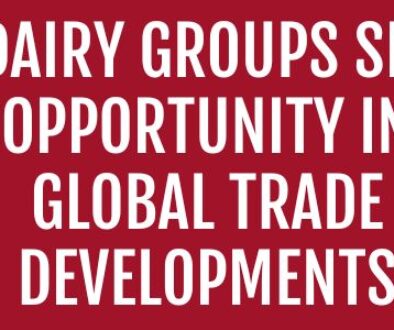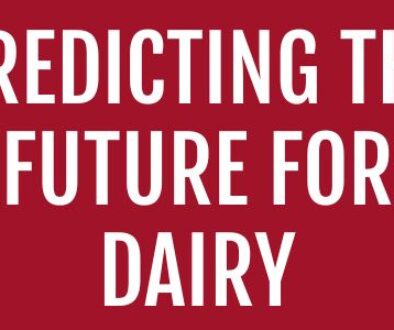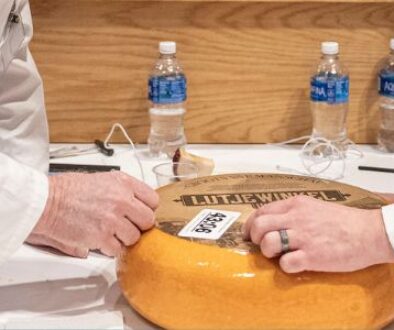Sustainability Still Matters To Many Companies, Consumers
Food and beverage processors still should pursue sustainability initiatives even if they believe support to be waning based on changes in regulatory priorities and eye-catching headlines.
Key Takeaways
- Food & beverage companies are reassessing their own efforts and goals with an eye toward both of the above.
- With the arrival of the Trump administration, governmental support for sustainability efforts is lessening.
- Many consumers still value sustainability and consider it when buying a company’s products.
A year or two ago, the question, “Does sustainability still matter to food and beverage companies?” might not have been asked by many people around the industry. Corporate Social Responsibility (CSR) reports had become the norm, particularly for larger processors, with annual updates on environmental and other sustainability efforts keeping consumers and stakeholders in the loop on progress.
Less than a year later, with a new presidential administration that has made it quite clear how it prioritizes environment protection efforts, “green” regulations and sustainability initiatives, that question today becomes one worth exploring.
The U.S. Environmental Protection Agency (EPA), for example, recently withdrew a proposed rule that would have implemented stricter wastewater effluent standards for slaughterhouse facilities across the country, looking to curb what was viewed by some as excessive pollution of the nation’s waterways.
Previously, Agriculture Secretary Brooke Rollins announced on X (formerly Twitter) that USDA would no longer fund solar- or wind-power projects on U.S. farmland, saying “millions of acres of prime farmland is left unusable so Green New Deal subsidized solar panels can be built,” destroying the future of the next generation of farmers in America.
Additionally, in June 2025, the Dept. of Energy cut more than $3.7 billion in taxpayer-funded awards for 24 projects across the nation, cuts that threatened large-scale sustainability projects at Kraft Heinz and Diageo, according to reports at the time. Kraft Heinz claimed it would still invest in the work, but the cuts sent a clear message about the views of the administration on these types of projects.
Meanwhile, reports have surfaced of major consumer packaged goods (CPG) companies adjusting their sustainability targets. In December 2024, Coca-Cola Co. announced updated voluntary environmental goals that replaced previous targets and extended the deadlines to 2035. The new goals were centered around water use, packaging design and emissions reduction.
In the spring, PepsiCo released what it called “refined” goals for its sustainability efforts in climate, packaging, agriculture and water use. The new targets were devised based on four years of learning the various challenges that impacted PepsiCo’s efforts — where it could speed up progress, and where advancement would take more time based on the realities of the business environment in those areas, the company noted.
“These refined goals reflect transparency about challenges, while reinforcing a commitment to rigorous progress-tracking to pursue the company’s long-term sustainability vision,” the company said in a release at the time of the announcement. Although both companies claimed the revisions were simply adjustments, some criticism was lobbed by environmental groups and some media outlets that they were backing down unnecessarily.
During the recent Pack Expo Las Vegas trade show, which was held Sept. 29-Oct. 1, sustainability as an attribute remained on display across the show floor, so producers of packaging materials and machinery still seem willing to help processors achieve their sustainability goals.
Anecdotally, sustainability still matters to many of the processors Food Processing spoke with, but some hinted they weren’t pushing as heavily on sustainability initiatives at the moment — that taste and flavor innovation was a much stronger demand in the business currently.
Consumers Care
Appearances in the form of headlines and announcements, of course, can be deceiving. Despite some of the modifications companies have made to their sustainability efforts, they haven’t outright eliminated efforts to protect the environment. According to one report just released by Hartman Group, food & beverage companies should continue to pursue sustainability improvements, because consumers still care.
The report, titled “Sustainability 2025: Do consumers care?” points out that 72% of consumers would like sustainable practices by companies to be more visible, and 68% hold large companies accountable for making the world a more sustainable place — 8 points more than the 2023 report.
As such, sustainability does appear to still matter to consumers; at the least, it hasn’t lost ground, retaining the groups that have been most concerned with it in the past. That means, by default, it should still appeal to food & beverage processors.
Further evidence of consumer appreciation for sustainability comes from the 2024 Sustainable Market Share Index, an annual research partnership between market analyst Circana and the New York University Stern Center for Sustainable Business (CSB), particularly for U.S. food & beverage compared to other global markets. For CPG products that display sustainable attributes on package, market share in the U.S. stood at 23.8% in 2024, up from 21.2% in 2023, the report said.
Additionally, the U.S. can gain more ground if consumers there follow the lead of their counterparts across the pond. In the UK, sustainable products enjoy a 36.8% market share, while those products in Germany make up 42% market share.
Joan Driggs, vice president of content and thought leadership at Circana, called sustainability “a business imperative” based on this data, and added, “This research demonstrates that products marketed as sustainable are not only performing well but outpacing conventional goods in growth, proving their value for consumers and the bottom line alike.”
The good news for processors is opportunity to capitalize abounds. On the packaging side, for example, Jim Owen, senior analyst for packaging & logistics at RaboResearch Food & Agribusiness, told Food Processing that reduction in the use of packaging remains a way for companies to address sustainability goals.
“Right-sizing packaging, lightweighting packaging … is still a great option for many producers,” he says. “That same ambition has been around for 10-plus years — but minimizing packaging minimizes your carbon footprint and your costs, and I think there’s a win-win-win to doing something simple like that.”
So as long as consumers get the message that products meet their sustainability demands, keeping the approach simple and tightly focused may be the best approach for food and beverage processors committed to protecting the environment and minimizing their carbon footprint.
Keep Up To Date On Cheese Industry News
Find all of HART Design & Manufacturing’s current industry news here.
Source: Food Processing




